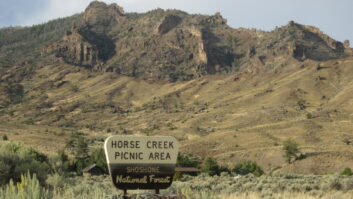Mark Lloyd quickly has become a focal point in the debate over “localism” and what broadcasters’ obligations are.
Now a number of organizations, many from the left side of the political spectrum, have sent a joint letter asking the Federal Communications Commission and congressional leaders to defend the work of Lloyd and the commission.
“In recent weeks, Mark Lloyd, the associate general counsel and chief diversity officer of the FCC, has come under attack by prominent cable TV and radio hosts, and even by some members of Congress, who have made false and misleading claims about his work at the agency,” the Sept. 16 letter states. They said this is “threatening to derail important work” by Congress and the FCC on media and tech policies.
The House Communications Subcommittee has an oversight meeting this week with the FCC commissioners.
Groups signing the letter include Free Press, Public Knowledge, the Center for American Progress, Communications Workers of America, NABET/CWA, Media Access Project, the Center for Media Justice, the American Library Association, the American Federation of Musicians, the National Organization for Women and the National Hispanic Media Coalition.
They said Lloyd was hired to collaborate on policies to expand opportunities for women, minorities and small business in the communications marketplace and that “his important work should not be hindered by lies and innuendo.”
Diversity of media ownership, they continued, is a crucial issue. “Diversity is about creating opportunities and broadening participation; it should go without saying, but it has absolutely nothing to do with censorship.” They also said that “localism … has been a cornerstone of broadcast regulation as long as there has been broadcast regulation. It has nothing to do with censorship or interference with local programming decisions. … Local public service programming and political talk radio, whether liberal or conservative, are not mutually exclusive.”
The overriding goal of the FCC, the groups concluded, “must be more speech, not less — more radio stations, more cable channels and more Web sites.”










